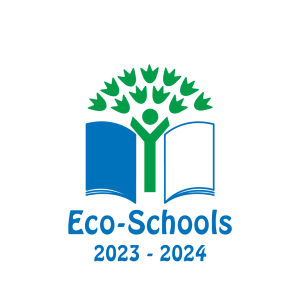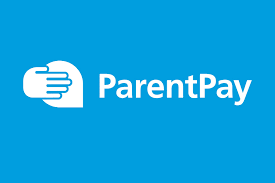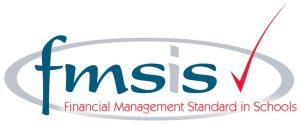EYFS
Personal, Social and Emotional Development
In Nursery we have been learning how to turn take and share the toys in our classroom. We have had lots of discussions about our feelings and how to control them.
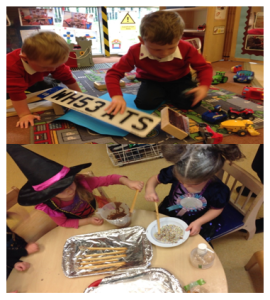
Reception Class
Reception class have been talking about their feelings and how we can let others know how we are feeling. The children have created a class charter to ensure the classroom is always a happy and safe place to be. Reception have enjoyed talking about their families and people who are close to them.
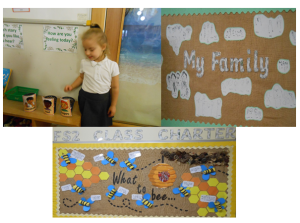
Year 1
In Year 1our awareness of the qualities and significance of healthy, positive friendships is growing. Children have learned how other people express their emotions, that others may feel differently than they do, and how to show others that they care. Everyone was good at articulating how individuals might appear when they are angry, scared, upset or worried. Identifying how to respond to this by either helping or giving them space. We are starting to comprehend how friendships affect us and the skills required to collaborate with others on a team project. We have also looked at how friendships can have problems and how to solve them.
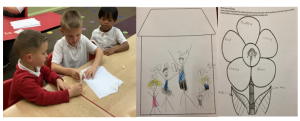
Year 2
Year 2 have been learning about families and relationships. We have focused on how families can be different, other people’s feelings and friendships. We read a wonderful story about loss and change and created our own cards to cheer someone up. We learnt about gender stereotypes which created an excellent discussion on gender roles and jobs.
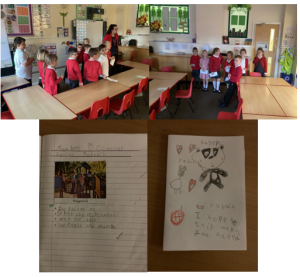
Year 3
Year 3 have been learning about families and relationships. We have explored the differences and similarities between families and the support they can offer. We have been able to identify problems that can occur in friendships and how these can be resolved. The children have learned about bullying and actions to take if it happens. They have considered what makes a good listener, who they trust and identified how they are similar and different to others. We have also begun to understand stereotypes and how these can arise due to age and gender.
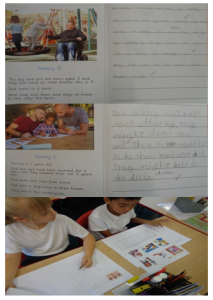
Year 4
Year 4 have been learning about families and relationships. They have discussed and explored how families are varied and those differences must be respected. The children have shown what it takes to be a good friend, looking at the boundaries of friendships. They have explored the term ‘bully’ and the roles of a bully, victim and a bystander. The children have also explored how their behavior’s affect others.
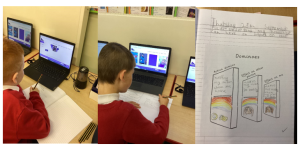
Year 5
In year 5 we have looked at families and relationships and worked on developing our understanding of families, including marriage and what to do when someone feels unsafe in their family. They have also looked at the impact of bullying and what influences a bully’s behavior’s.
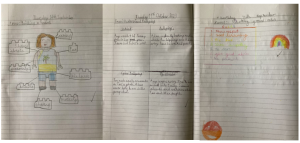
Year 6
Year 6 have been learning about families and relationships. The children have been learning about what a conflict is and skills about how they can resolve a conflict. They have learnt about respect and how and why this is an important part of relationships. The children really enjoyed learning about stereotyping and have produced some informative posters about what it is and ways to challenge it.
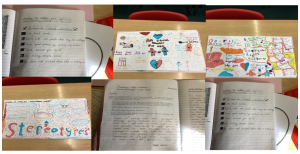
Long Term Plan
Long Term Plan for PSHE and RSHE
Intent
What is taught?
We recognise that Personal, Social and Health Education (PSHE) is a crucial element of our curriculum as it teaches our children how to become healthy, safe, independent and responsible members of society. Each child is unique and we value and celebrate differences within school and the wider community. We pride ourselves in knowing and catering for a child’s individual needs from the academic to wellbeing needs.
The Department for Education sees PSHE as an ‘important and necessary’ part of children’s education. As there is no National Curriculum for this subject we our curriculum is based upon the statutory requirements for Relationships and Health education, but goes beyond these requirements (primarily in the Citizenship and Economic wellbeing areas) as they refer to the PSHE Association’s Programme of Study which is recommended by the DfE. We use resources from Kapow, TalkAbout and Project Evolve to support the teaching of the curriculum, social skills and E-Safety throughout school. Sex education has been included in line with the DfE recommendations and is covered in Year 6. The curriculum supports the requirements of the Equality Act through direct teaching, for example learning about different families, the negative effect of stereotypes and celebrating differences, in addition to the inclusion of diverse teaching resources throughout each area, aiming to develop a subject which:
-
- promotes positive wellbeing, self-esteem and good mental health of our whole school.
- promotes the spiritual, moral, cultural, mental and physical development of pupils at the school and of society
- develops children’s social skills to effectively communicate with their peers and with others in the wider community.
- supports pupils to create and develop meaningful relationship both in and outside of school.
- supports children to develop a safe and healthy lifestyle through the informed choices that they make.
- prepares pupils at the school for the opportunities, responsibilities and experiences of later life.
Each area is revisited every year to allow children to build on prior learning. The curriculum provides a progressive programme.
Our enhancement opportunities both within school activities and in the curriculum are to ensure the children can become curious and enquiring learners, develop new interests, support a caring and respectful attitude towards others, build meaningful relationships and become responsible for their own learning and attitudes. We also aim to raise aspirations and widen children’s ideas of what is on offer to them beyond the locality they live in for work, leisure and living. Interest and talents are valued and nurtured through strong family partnerships.
Our PSHE/RSHE Curriculum lends itself to developing the following key skills for life:
- resilience
- collaboration
- perseverance
- reasoning
- empathy
- listening
- noticing
Implementation
How is PSHE and RSE taught in our School?
Early Years
Children’s personal, social and emotional development (PSED) is crucial for children to lead healthy and happy lives, and is fundamental to their cognitive development. Underpinning their personal development are the important attachments that shape their social world. Strong, warm and supportive relationships with adults enable children to learn how to understand their own feelings and those of others. Children are supported to manage emotions, develop a positive sense of self, set themselves simple goals, have confidence in their own abilities, to persist and wait for what they want and direct attention as necessary. Through adult modelling and guidance, they learn how to look after their bodies, including healthy eating, and manage personal needs independently. Through supported interaction with other children, they learn how to make good friendships, co-operate and resolve conflicts peaceably. These attributes provide a secure platform from which children can achieve at school and in later life.
Key Stage One and Two
Our PSHE and RSHE curriculum is a whole school approach which consists of five areas of learning:
- Families and relationships,
- Health and Wellbeing
- Safety and the changing body
- Citizenship (plus Identity in Year 6)
- Economic Wellbeing
The curriculum provides a progressive programme. Throughout the different year groups, we have a focus on development of vocabulary, specific to the topics being taught. Planning focuses on the key knowledge that the children should know and remember that is progressive and sequential and each area is revisited every year to allow children to build on prior learning. Teaching and learning in the classroom encourages children to retain key facts and information. A range of teaching and learning activities are used and are based on good practice in teaching RSHE/PSHE education to ensure that all children can access learning and make progress. Role-play activities are also included to help children play out scenarios that they may find themselves in. Teaching provides the opportunity for children to engage in real life and current topics in a safe and structured way and is planned to be delivered every week.
There are meaningful opportunities for cross-curricular learning, in particular with Computing for online safety and Science for growing, nutrition, teeth, diet and lifestyle. We provide consistent messages throughout the age ranges including how and where to access help. The role of parents and carers is recognised and we actively include them in their children’s learning.
Our curriculum is also enhanced through whole school assemblies, periodic events and the provision of opportunities for pupils to actively engage in worthwhile projects and take on positions of responsibility, e.g. charity fundraising events, visiting the local care home
PSHE is taught by class teachers and the PSHE lead. Relationships education, relationships and sex education (RSE) and health education is taught discretely to all year groups.
Impact
Why is PSHE and RSHE taught in this way?
Our curriculum has been carefully planned and structured to reflect the needs of our children in line with the PSHE Association and Statutory guidance.
The main reasons for teaching PSHE and RSHE this way is so that our children are able to:
- stay safe physically, mentally and online
- understand how be healthy
- build self-esteem, resilience and problem-solving strategies
- understand how develop and maintain positive and healthy relationship
- have respect for themselves and others
We firmly believe that a meaningful PSHE curriculum is the key to children becoming confident, tolerant and well-rounded adults. Pupils can approach a range of real-life situations and apply their skills and attributes to help navigate themselves through modern life. From exposure to a range of global issues and problems, pupils can build up tolerance and a sense of responsibility of being a global citizen. Pupils can understand the different lifestyles that people may live and be respectful and tolerant towards those leading different lives to themselves and utilise their learning within their daily lives, from dealing with friendship issues, to resilience to making healthy choices and knowing where and how to get help when needed. Pupils will leave us, prepared for the next stage in their lives. They will be confident, articulate, independent, resilient, and able to work towards a positive future and a happy life.
Long Term Overview
Long Term Plan for PSHE and RSHE
Medium Term Plans
Medium Term Plan FS2 PSHE and RSHE
Medium Term Plan Year 1 PSHE and RSHE
Medium Term Plan Year 2 PSHE and RSHE
Medium Term Plan Year 3 PSHE and RSHE
Medium Term Plan Year 4 PSHE and RSHE
Medium Term Plan Year 5 PSHE and RSHE
Medium Term Plan Year 6 PSHE and RSHE

